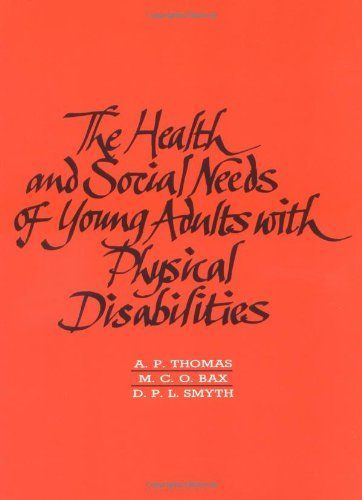
The Health and Social Needs of Young Adults with Physical Disabilities
This book addresses a topic that has received surprisingly little attention to date--the health and social needs of young adults with physical disabilities. Following an extensive review of the contemporary literature on the subject, the authors report an in-depth study on a large sample of physically disabled 18- to 25-year olds living in two survey areas, one urban and one semirural. The study, which included pediatric examinations and interviews by a social psychologist, found that a large proportion of subjects face social and medical problems, for instance: They have serious health needs that are not being met by the statutory services; they left school with less than adequate skills to enable them to lead an independent adult life; they are without a daytime occupation or attend day centers that are described as "unstimulating" places; they do not receive all the financial benefits to which they are entitled; they are isolated from their peers and lack the social skills to interact with others in a positive and successful way. Parents and guardians were also found to receive little physical or emotional support. These findings underline the need for a better system of providing and coordinating services for this client group, and the authors call for the formation, within each local health authority area, of an "Adult Disability Service" that would have a clinical and planning role in terms of health care and that would act as a linchpin in the coordination of health, educational, social, and voluntary services. Although this work relates specifically to service provision in the United Kingdom, it is felt that the conclusions and recommendations are also broadly applicable to the situation in other countries.